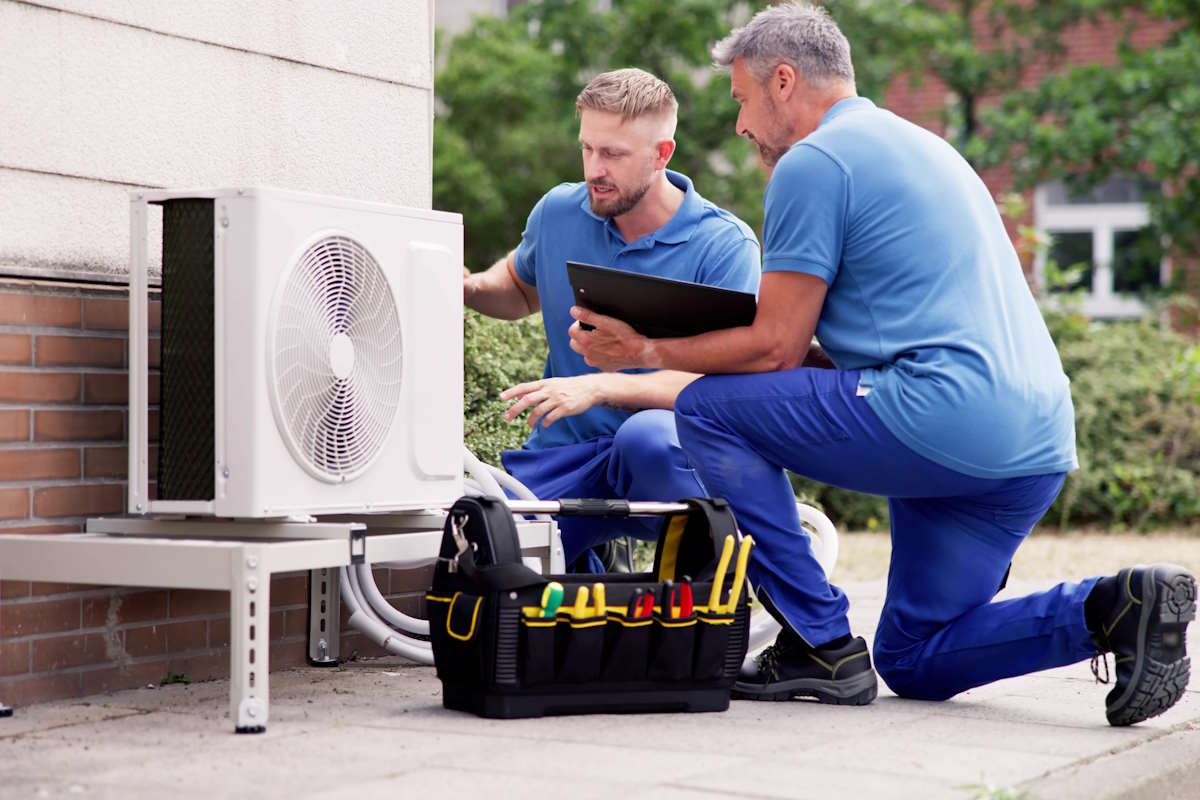Early detection of HVAC issues aims to maintain system efficiency. When left unattended, these small issues often escalate. Strange noises coming from your system could indicate a serious mechanical failure. Continue reading →
Maintaining a comfortable indoor environment hinges heavily on properly functioning your HVAC system. Unfortunately, many homeowners face HVAC challenges that can disrupt their peace and comfort.
Once you understand the root causes and possible fixes, you can ensure your home remains a refuge from outdoor temperatures. The following guide aims to provide you with strategies to address common HVAC problems efficiently, saving you time and potentially costly repairs. Keep reading to learn more.


Early detection of HVAC issues aims to maintain system efficiency. Many homeowners ignore minor irregularities, believing they can resolve them later. When left unattended, these small issues often escalate. Strange noises coming from your system could indicate a loose component or a more serious mechanical failure.
If you hear clanking, rattling, or buzzing, you need to investigate the source promptly. A burnt smell can also be concerning and may signify electrical problems. Seek the assistance of a professional HVAC contractor in Dallas, TX if you are from the area to identify persistent issues early on. Know that regular maintenance, including professional HVAC check-ups, can prevent tiny problems from becoming major issues.
A malfunctioning thermostat can result in significant discomfort. If your thermostat does not respond or fails to maintain the desired temperature, it may need recalibration or replacement. Begin troubleshooting by inspecting the device for debris or dirt, which could hinder its function. Replacing batteries can sometimes yield immediate results.
If the thermostat remains unresponsive after these steps, it may be due to wiring issues or compatibility problems with your HVAC unit. In such cases, seeking help from a qualified technician is imperative to ensure accurate diagnostics and repairs.
Reduced airflow can create discomfort and cause spikes in energy costs. A common reason is a dirty air filter, which can restrict airflow dramatically. Regularly checking and replacing your air filter is crucial for optimal system performance.
Blocked supply vents can also affect airflow: check for furniture, rugs, or obstructions around vents. If airflow issues persist despite these actions, ductwork could be damaged or improperly sealed. Leaks or crumples in ducts can drastically reduce airflow efficiency. It’s advisable to engage HVAC professionals for duct inspections to identify and rectify any complex issues.
Various noises emanating from your HVAC system can indicate underlying troubles. A high-pitched squeal may highlight a worn-out belt, whereas a hissing sound might suggest a refrigerant leak.
Know that if your unit produces pounding or rattling noises, it could point to loose or damaged components. Ignoring these sounds can lead to more significant breakdowns, resulting in costly repairs. Regular servicing by professionals can help identify these problems early and provide appropriate solutions.
Have you ever experienced rooms in your home that are too hot or too cold? Inconsistent temperature regulation is often linked to insufficient insulation, drafty windows, or poorly designed duct systems.
Don’t forget to check your insulation: inadequate insulation can cause heat loss during winter and heat gain in summer. Use weather stripping on windows and doors to seal drafts effectively. If temperature issues persist, it’s wise to consult a professional who can analyze your home’s layout and make the necessary HVAC adjustments.
Receiving unexpectedly high energy bills can be alarming and often signals HVAC inefficiency. Several factors contribute to this issue, with inefficient systems being the most common culprit. An HVAC unit that frequently runs without yielding the desired temperature can be draining your energy resources.
Regular maintenance, such as cleaning coils and ensuring proper refrigerant levels, can improve efficiency. Upgrading outmoded systems to energy-efficient models can lead to significant savings. Track your energy usage patterns to identify unusual spikes and pinpoint issues before they escalate.
Among the most effective strategies against HVAC issues is regular preventative maintenance. Form a habit of checking air filters monthly, inspecting for leaks, and ensuring proper ventilation throughout your home. Scheduling bi-annual check-ups with a qualified HVAC professional can keep your system in peak condition and extend its lifespan.
Seasonal preparations, like switching out your system’s settings according to the season’s demands, can further enhance efficiency. Keep an eye out for any signs related to performance, and promptly address them. Early interventions can prevent unnecessary discomfort and save you money in the long run. Routine oversight of your HVAC system can circumvent numerous common problems.
When you detect issues early, address them promptly, and conduct regular maintenance, you can enjoy comfort without interruption. Take proactive steps to maintain your HVAC system and contact qualified professionals as needed. Keeping your HVAC unit enhances its lifespan and ensures that your indoor climate remains pleasant. Through attention to detail and consistent care, you will significantly reduce the chances of larger problems more efficiently.
Developing communication skills, fostering product knowledge, and deploying technology can set organizations up for success.…
Automation will only become more critical as businesses evolve further in the future. Companies that…
Explore server-based Android emulators for cost savings, scalability, gaming, AI integration, and efficient app testing.…
With a conversational AI platform handling routine interactions and AI agents for sales guiding prospects…
Managing your own server is about curiosity, responsibility, and a willingness to learn. It's about…
Meeting adult learners where they are—with flexibility, real-world relevance, and a personal touch—not only keeps…